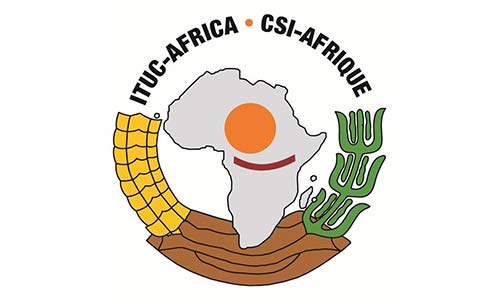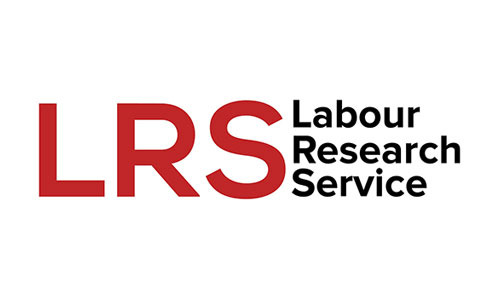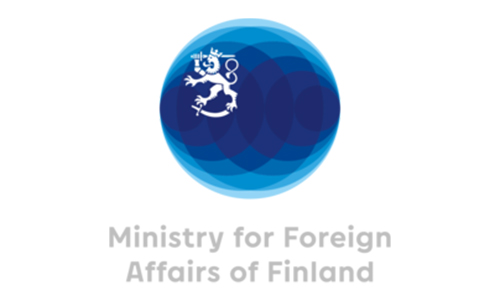The Tunis declaration, adopted on 27 September by trade unions from 39 African countries stresses the inclusion of labour provisions in the African Continental Free Trade Area (AfCFTA) agreement to ensure compliance with international labour standards and the decent work agenda.
The declaration was made at the ITUC-Africa Trade Union Continental Forum on the AfCFTA which was held under the theme: Ensuring decent work in the framework of the AfCFTA implementation – towards the inclusion of the positions of the trade unions in the AfCFTA processes. The declaration contains workers’ concerns and demands, including:
- Space for social dialogue must be created at the national, regional and continental levels for African citizens, and their socio-economic groupings — that is workers including those of the informal economy, farmers, traders, producers, enterprises, civil society, private sector – to participate effectively in a democratic and transparent process and ensure the reflection of their concerns and views in the negotiations.”
- Information on the AfCFTA processes is made available in a timely and accessible manner to citizens to enable their input and effective participation at national, regional and continental levels.
Noureddine Taboubi, Secretary General of Tunisian General Labour Union (UGTT), says:
“The AfCFTA creates possibilities for decent work that will stop irregular migration and modern slavery, and provide an opportunity to transform Africa’s precarious economies, and end poverty.”
Kwasi Adu-Amankwah, Secretary General of ITUC-Africa, says:
“We want an appropriate space for non-state actors in the AfCFTA to canvas for social dialogue at national and continental levels. Trade unions should be in this space to advance workers’ rights and interests, and to support trade and regional integration in Africa.”
Rose Omamo, Vice President of IndustriALL, says:
“The AfCFTA is an important agreement for the continent with potential to create decent jobs and revive industrialization in the manufacturing sectors through increased intra-African trade. But this opportunity will be lost if workers and trade unions are excluded from the negotiations,”
Trenton Elsely, Executive Director of Labour Research Service, says:
“We are grappling with the question of the impact of the AfCFTA on key developmental metrics for African nations and the implications for the trade union movement will be. We are interested in strategies that trade unions in Africa can adopt to promote developmental outcomes of the AfCFTA.”
Cynthia Samuel-Olonjuwon, ILO Regional Director for Africa, says:
The benefits of AFCFTA won’t fall from the sky. The realisation of the agreement’s full potential depends on massive dose of political will, but also on the promotion of policies and interventions that provide inclusive solutions to various challenges. This calls for deep understanding by every stakeholder of the potential impacts of the agreement and the implementation on the respective constituencies.
Maria Helena Andre, Director of the ILO’s ACTRAV, says:
It is crucial for trade unions to have a voice in all matters related to trade. There cannot be international trade without labour.
The AfCFTA, which started trading in 2021, aims to promote intra-African trade, value-added manufacturing and sustainable development. Additionally, it is expected to double trade and increase the integration of regional economic communities.
The forum comprised 90 delegates, from ITUC-Africa affiliates, sub-regional trade union organisations, trade union support organisations and civil society organisations.
The forum, which was held with support from The Trade Union Solidarity Centre of Finland (SASK) and the Labour Research Service, received research reports from Chad, Ghana, Namibia, Rwanda, Tunisia, and Zambia on possible national impacts of the AfCFTA. Other presentations were made by SASK and Third World Network Africa. The forum participants interrogated policies related to the implementation of the agreement, and industrialisation and trade.
Pushing for worker-centred trade policies and agreements
Workers and their organisations believe trade agreements should aim to create jobs and ensure decent incomes and livelihoods by, for instance, boosting the productive capabilities of nations and leading sustainable and inclusive industrialisation. Trade liberalisation – such as under the protocols on trade in goods and services – is one of the instruments that need balancing during industrialisation. A clearer understanding of how the continental free trade area can promote a balanced mix of such instruments can help to win legitimacy for the AfCFTA among working people.
With trade liberalisation firmly on the agenda of the stakeholders in the AfCFTA, the trade union movement is concerned about trade policies and the implications for employment, a decent work agenda, poverty and inequality, and energy and climate change. Beyond the hype around the negotiations on AfCFTA protocols, there is very little clarity within the labour movement and among ordinary citizens about the totality of the continental trade agreement and the implications for workers, their communities, jobs and livelihoods. The African Regional Organisation of the International Trade Union Confederation (ITUC-Africa) wants to see labour and decent work creation as an integral part of the AfCFTA and its processes. The unions will also develop capabilities to monitor the implementation of the agreement at all levels.

Essential resource: Trade unions & Trade: A guide to the African Continental Free Trade Area (AfCFTA) agreement
Nelly Nyagah
Nelly Nyagah is the Head of Communications at Labour Research Service.





